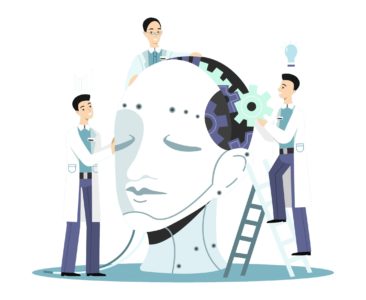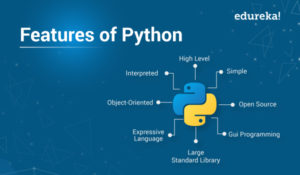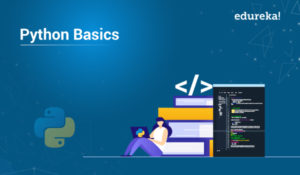How To Implement Expert System in Artificial Intelligence?
What is Artificial Intelligence?
Well, normally the name Artificial Intelligence suggests the Intelligence of a machine which is artificial.
The intelligence posses by human is known as human intelligence, like in the same way the intelligence demonstrated by a machine is known as Artificial Intelligence.
In computer science. Artificial intelligence(AI), sometimes called machine intelligence. The research field of Artificial Intelligence was born at a workshop at Dartmouth College in 1956.
You can get a better understanding of AI and propel your career towards a better job and salary with the Artificial Intelligence Course.
Browse Categories

Applications Of Artificial Intelligence In Real World:
The chatbots like SIRI, CORTANA which have gained so much of popularity in nowadays. Other examples like EVA (Electronic Virtual Assistant), an AI-based chatbot developed by HDFC banks’s AI research department which can collect knowledge from thousands of sources and provide simple answers in less than 0.4 seconds. There are so many examples of AI applications you will find in different field of our society.
Moving on with this Expert System In Artificial Intelligence,
Expert System In Artificial Intelligence
What is an expert system?
Researchers of Standford University, Computer Science Department has introduced this domain of AI and it is a prominent research domain of AI.
It is a computer application which can solve most complex problems of any specific domain. It is considered at the highest level of human Intelligence and expertise as it is based on knowledge acquired from an expert.
Expert System can also be defined as computer-based decision making system that can solve complex decision-making problems using both facts and heuristics.
Moving on with this Expert System In Artificial Intelligence,
Domains where Expert Systems are used

Expert Systems today
The American Medical Association has approved the first expert system which was Pathfinder system.
It was built Standford University in 1980, for hematopathology diagnosis. This decision-theoretic expert system in short Pathfinder, can diagnoses lymph-node diseases.
In the end it deals with over 60 diseases and can recognize over 100 symptoms.
Expert system in business
Recently developed an expert system ROSS, the AI attorney, ROSS is a self-learning system that uses data mining, pattern recognition, deep learning and natural language processing to mimic the way the human brain works.
Moving on with this Expert System In Artificial Intelligence,
Main areas of application
- Interpretation – drawing high level conclusions based on data.
- Prediction – projecting probable outcomes.
- Diagnosis – determining the cause of malfunctions, disease, etc.
- Design – finding best configuration based on criteria.
- Planning – proposing a series of actions to achieve a goal.
- Monitoring – comparing observed behaviour to the expected behaviour.
- Debugging and Repair – prescribing and implementing remedies.
- Instruction – assisting students in learning.
- Control – governing the behaviour of a system.
Purpose of Expert System
The main purpose of an expert system is to acquire knowledge of human experts and to replicate that knowledge and skills of human expert in a particular area.
Then the system will use that knowledge and skills to solve complex problems of that particular area without human experts participation.
Characteristics of Expert Systems
- High performance
- Understandable
- Reliable
- Highly responsive
Main components of a rule-based or an expert system
The main components are:
- Knowledge base
- Working memory
- Inference engine
- Explanation system
- User interface
- Knowledge base editor
Moving on with this Expert System In Artificial Intelligence,
Three stages of designing ES
Knowledge acquisition:
The process of getting knowledge from experts by interviewing or by observing human experts, reading specific books, etc.
Knowledge Base:
The knowledge base is a container of high quality knowledge. Skills develop through practice and intelligence comes from knowledge without knowledge one cannot proof or one cannot show his or her intelligence, so knowledge is very important to develop skill and to exhibit intelligence.
Like, in the same way knowledge is required for machine also to exhibit its intelligence. The accuracy of prediction and also the performance of the system is highly and majorly dependent on the collection of perfect, accurate and precise knowledge.
Now what is knowledge?
Knowledge is data or information. For us human being by reading articles and by reading books or from different resources we used to gather knowledge if we can see the process of gaining and enriching knowledge minutly then we will find that by reading books or by reading articles or from any resources we are fetching and extracting data and information from different sources which we then used to store in our brain.
So knowledge is data, knowledge is information. Knowledge is also collection of facts.
Data, information and past experience combined together are termed as knowledge.
Data Science Training
Knowledge Representation:
Knowledge representation is the method of selecting the most appropriate structures to represent the knowledge.
It is the method of organizing and formalizing knowledge in the knowledge base. It is done in the form of IF-THEN-ELSE rules.
Knowledge Validation:
Testing the knowledge of ES is correct and complete. This whole process is called knowledge engineering.
Inference Engine:
In case of knowledge-based ES, the Inference Engine acquires and manipulates the knowledge from the knowledge base to come at a particular solution.
In case of rule based ES,
- It applies rules repeatedly to the facts, which are obtained from earlier rule application.
- It addition of new knowledge into the knowledge base if required.
- It resolves rules conflict when multiple rules are applicable to a particular case.
Inference Engine uses the following strategies −
- Forward Chaining
- Backward Chaining
Forward Chaining
In Forward Chaining, the Inference Engine gives the outcome by following the chain of conditions and derivations.
Whatever the knowledge is feeded in the system it goes through all those knowledges and facts and sorts them before concluding a solution.
By forward chaining method, expert system tries to answers, “What can happen next?”
Application of forward chaining: House price prediction, stock prediction, prediction of share market etc.
Backward Chaining
When something has happened in a particular domain, the Inference Engine tries to find out which condition could have happened in the past for this result. By backward chaining method, expert system tries to answer, “Why this happened?”. By backward chaining method inference engine tries to find out cause or reason.
For example: diagnosis of blood cancer in humans.
Pros Cons And Limitations
Advantages of Expert System
- Hold huge amounts of information
- Minimize employee training costs
- Centralize the decision making process
- Make things more efficient by reducing the time needed to solve problems
- Combine various human expert intelligences
- Reduce the number of human errors
- Provide strategic and comparative advantages that may create problems for competitors
- Look over transactions that human experts may not think of
- Provide answers for decisions, processes and tasks that are repetitive
Disadvantages of expert system:
- Lack of creative responses that human experts are capable of
- Not capable of explaining the logic and reasoning behind a decision
- It is not easy to automate complex processes
- There is no flexibility and ability to adapt to changing environments
- Not able to recognize when there is no answer
- No common sense used in making decisions
Limitations:
- It fails to make creative responses as it is a machine.
- If the data which was feeded in the knowledge base is not accurate or correct it will give wrong predictions and wrong results.
- Maintenance cost of expert system is high.
- When different problems comes human expert can give different different solutions and creative responses but expert system fails to give creative responses.
This brings us to the end of this article on Expert Systems In Artificial Intelligence.
If you wish to enroll for a complete course on Artificial Intelligence and Machine Learning, Edureka has a specially curated Machine Learning Engineer Master Program that will make you proficient in techniques like Supervised Learning, Unsupervised Learning, and Natural Language Processing.
It includes training on the latest advancements and technical approaches in Artificial Intelligence & Machine Learning such as Deep Learning, Graphical Models and Reinforcement Learning.




Comments
Post a Comment